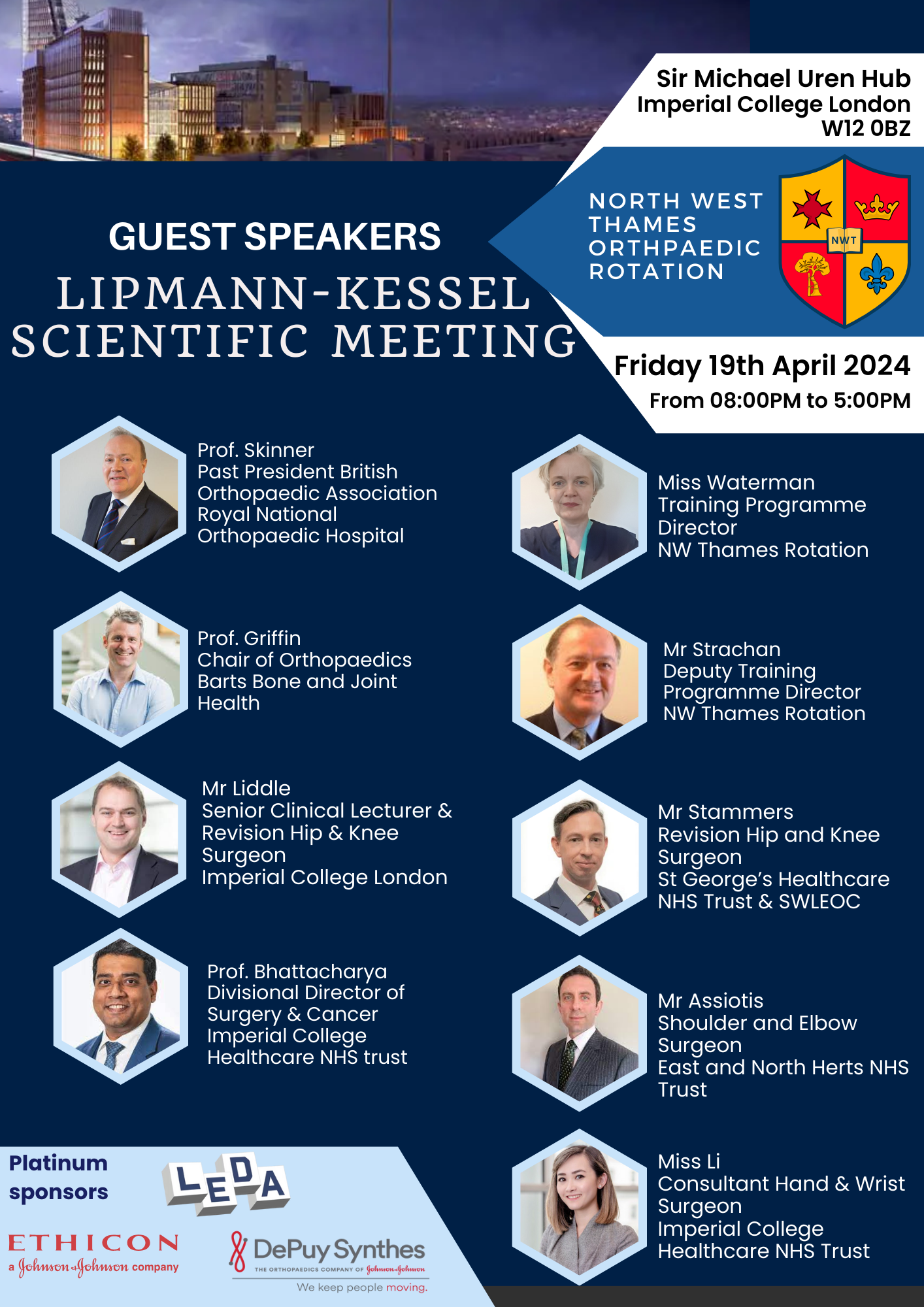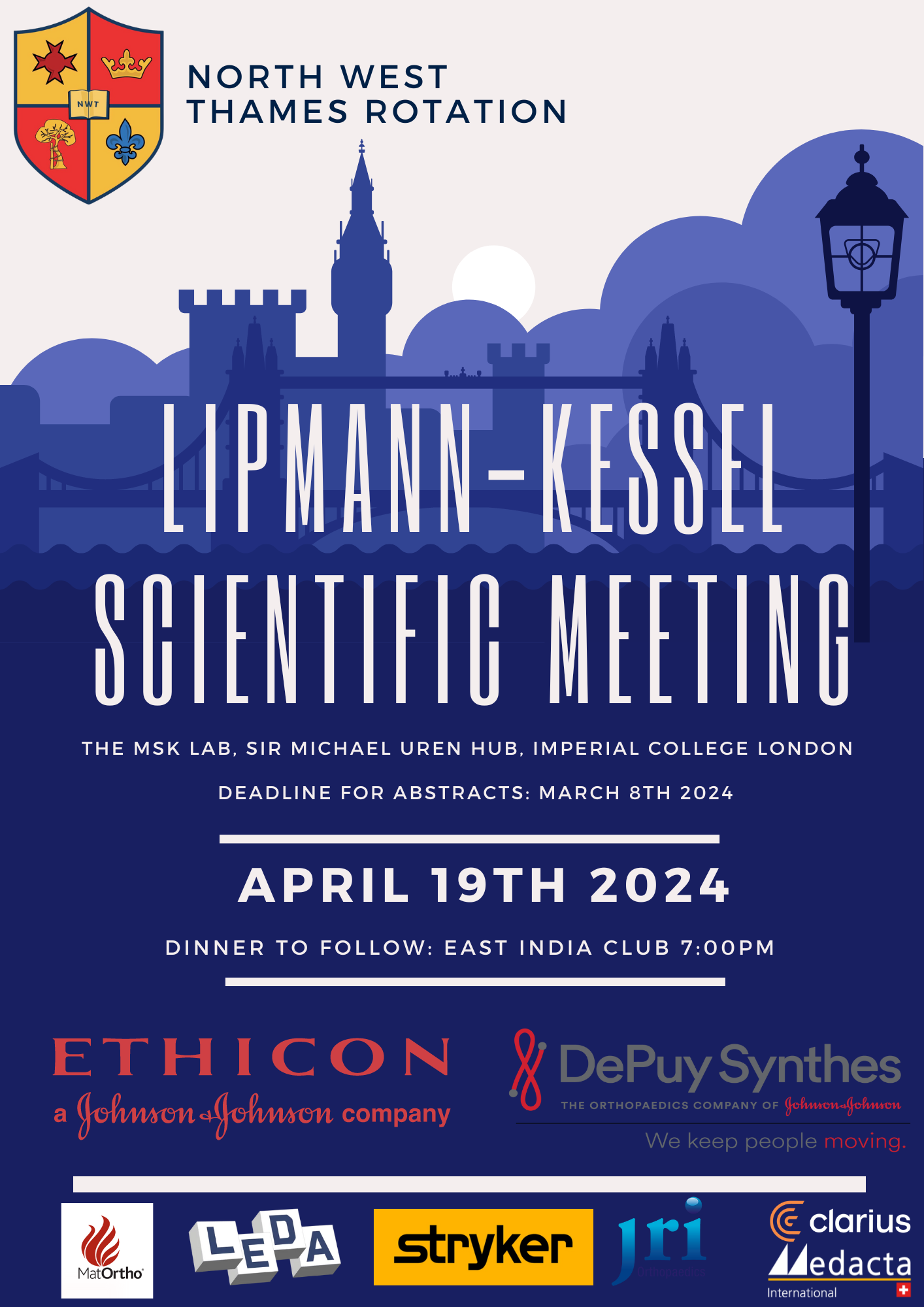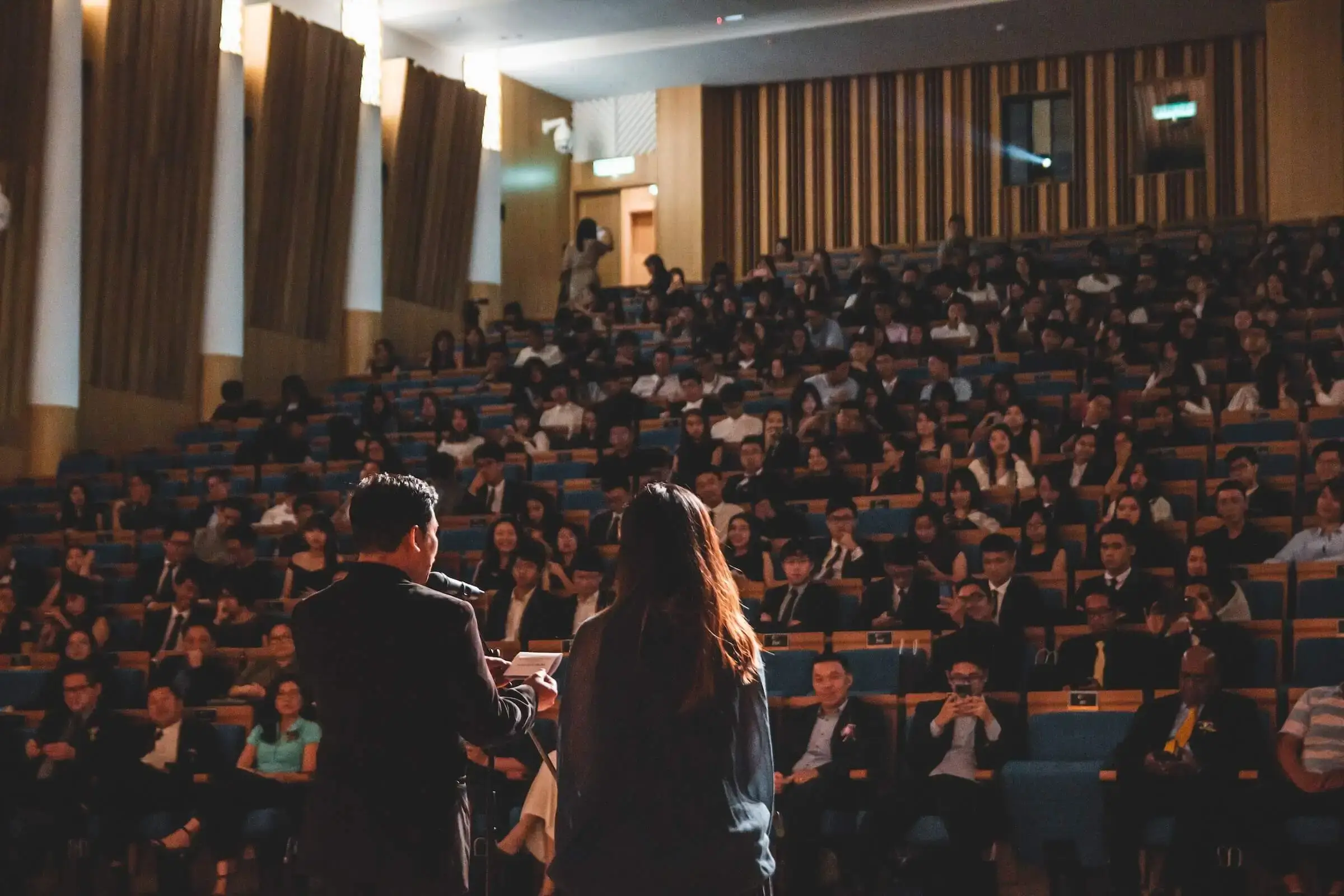

CCT Requirements
Workplace based assessments/ISCP
In order to achieve CCT trainees must achieve an outcome six in final ARCP, have no probity issues, and have passed the FRCS examination. The JCST has recently modified the mandatory workplace-based assessments. Trainees must be able to recognise and deal with the following critical conditions with appropriate WPBA evidence: (1) compartment syndrome (any site), (2) neurovascular injuries (any site), (3) cauda equina syndrome, (4) immediate assessment, care and referral of spinal trauma, (5) spinal infections, (6) complications of inflammatory spinal conditions, (7) metastatic spinal compression, (8) the painful spine in the child, (9) physiological response to trauma, (10) the painful hip in the child, (11) necrotising fasciitis, (12) diabetic foot (13) primary and secondary musculoskeletal malignancy (14) major trauma resuscitation (CEX)
Operative Logbook
Trainees need to provide evidence of the following:
- 1800 cases as an indicative number
- 1260 (70% of the 1800 described above) cases as first surgeon
- Multiple operations at the same sitting, in the same anatomical area, must not be unbundled (e.g. within the same foot).
- Bilateral cases may count as two operations.
- Injections in any site do not count as part of the indicative numbers.
- PBA level 3 x Level 4 PBAs in each specific operation group listed above by two or more trainers except for supracondylar fracture and application of external fixator.
- For supracondylar fracture and external fixator application, an indicative number of 1 x PBA level 4 in a non-simulated setting is acceptable. One PBA may be assessed in simulation with agreement of AES, TPD.
Research
Trainees need to provide evidence of:
- Completion of Good Clinical Practice course within 3 years of CCT
- Evidence of Research Methods training or a research methodologies course
- Evidence of journal club activity/literature review evidenced by a CBD or reflection on the journal club
- Two of:
- A higher degree eg MSc, MPhil, MD, PhD
- Authorship of two PubMed cited papers relevant to specialty, not including case reports
- A minimum of two presentations at national or international meetings
- Recruitment of 5 or more patients into a research ethics committee approved study, or ten or more to a multi-centre observational study
- Advanced research evidence may be used if the above is deficient (see JCST website)
Quality Improvement
Minimum of one audit per year, two audits must have progressed through full audit cycle and have WBA evidence
Medical Education
Completion of Train the Trainers or similar, and minimum of one lecture/presentation per year on a teaching programme with structured written feedback
Additional Courses/qualifications
Evidence of leadership and management e.g. through courses
Educational Conferences
Evidence of commitment to CPD through courses, meetings and training
Certification of Completion of Training
Progression towards CCT should be a gradual process, and your progress towards it should be checked at every ARCP. The critical year checklists for ST4, ST6 and ST7 are good indicators of how well you are progressing, and you should plan your rotations, projects and courses with CCT in mind. All trainees now need to demonstrate experience and exposure to all specialties including spines, hand, paediatrics, trauma, upper limb, lower limb/arthroplasty and foot and ankle. You can demonstrate an understanding of most of these broad areas using the workplace-based assessments offered by ISCP.
MSK Lab
Mrs Kathy Lewis
The Clinical Academic Department
Chair- Professor Justin Cobb (j.cobb@imperial.ac.uk)
Reader- Mr Chinmay Gupte (c.gupte00@imperial.ac.uk)
Clinical Senior Lecturers – Mr Alex Liddle – (a.liddle@imperial.ac.uk); Mr Gareth Jones (g.g.jones@imperial.ac.uk)
NIHR Academic Clinical Lecturer – Mr Kartik Logishetty (k.logishetty@imperial.ac.uk)
NIHR Academic Clinical Fellows – Mr Omar Musbahi (om112@imperial.ac.uk), Mr Timothy Lindsay (t.lindsay@imperial.ac.uk)
Current MD/PhD Students – Mr Andrew Davies (a.davies20@imperial.ac.uk), Miss Martinique Vella-Baldacchino (martinique.vella-baldacchino13@imperial.ac.uk), Mr Thomas Edwards (thomas.edwards@imperial.ac.uk), Mr Monil Karia (monil.karia@imperial.ac.uk)
The MSk Lab was built with the help of charitable donations and research grants, to help surgeons and scientists further musculoskeletal research for patient benefit. At the Biomedical Engineering Hub in White City, there are engineers and clinical research fellows who can help you find the right people for the project you have in mind.
Getting involved with Research at MSk Lab
The MSk Lab hosts students undertaking musculoskeletal research in BSc, MSc, MRes, MD, and PhD programs at Imperial College London. There is a network of national and international collaborators, cutting across medical and surgical specialities, and engineering.
Let Richie (richard.abel@imperial.ac.uk) know if you are interested in teaching on the Surgical Design, Technology and Innovation undergraduate degree.
Have a chat with Prof. Cobb, Gareth, Alex, or Kartik if you are thinking about an Out of Programme Research (OOPR) period for an MD (usually 2 years) or a PhD (usually 3 years). We can help you with your research question, or highlight existing opportunities, and help you get funding and supervision.
Mr Gupte runs the Orthopaedic stream of the MSc in Surgical Innovation. This is a 2-year part-time course including face-to-face teaching aimed at FRCS (T&O) preparation, and a dedicated MSk research block. NW London trainees often have discounted fees. Contact Chim or Kartik for more information. Aside from these formal paths, here are a few of the active themes of research, which it would be easy for a keen trainee to contribute to.
Outcome studies using gait analysis and Patient Centred Outcome Measures
If you have a group of patients, or better still a randomised trial of two different procedures- then email Amy to talk over your idea. a.maslivec@imperial.ac.uk
Amy Maslivec runs the gait lab where we have revealed the huge differences in functional outcome between procedures that are meant to be almost equivalent, including hip resurfacing vs. total hip arthroplasty, and compartmental vs. total knee arthroplasty. MSkLab has developed novel metrics to measure outcome after surgery without ceiling effects, and has a large dataset of Radiographs, CT scans, 3D plans, Gait analyses, PROMs and PCOMs. If you are interested in exploring how you can apply these methods to your own research question, or in interogating these data with a new perspective, get in touch.
Surgical training methods
The MSkLab developed cognitive task analysis (CTA), and virtual (VR) and augmented reality (AR) training, and patient-specific instrumentation (PSI) to aid in surgical precision. These have been primarily led by Mr Gupte and Prof. Cobb. The group collaborates with industry, deaneries, NIHR and Health Education England to improve surgical training methodology. If you are interested in developing these technologies, applying them to new procedures, or testing existing CTA/VR/AR platforms in new groups of trainees, please get in touch.
Current research is exploring intra-operative teamwork and human factors through video-based analysis. These methods decompose complex surgical procedures, identify efficiencies and develop error-reduction mechanisms and novel instrumentation.
The group has been highly productive in securing research grants, prizes, papers, and industrial collaborators over the years, and always keen to grow. Get in touch with Kartik, Kapil or Tom if you want to get involved: k.logishetty@imperial.ac.uk / kapil.sugand04@imperial.ac.uk / thomas.edwards@imperial.ac.uk
PSI guides for difficult operations
Simon will help you plan almost any operation you can dream up, and then 3D print the instruments to allow you to achieve it. Getting your consultant to agree to the operation may be harder. We have done some great cases over the last year. This one was just before lockdown.
Contact Simon (s.harris@imperial.ac.uk) if you have a case you want to talk over, or Gareth (g.g.jones@imperial.ac.uk) for new research projects in this area.
AI and orthopaedics
In addition to exploring internal MSkLab datasets, the group – led by Alex (alex.liddle@imperial.ac.uk) and Gareth (g.g.jones@imperial.ac.uk) utilise ‘big data’ from national and international datasets to apply cutting-edge AI techniques. Ongoing projects including predicting the development of arthritis using fewer inputs, predicting poor outcomes after arthroplasty, and developing convolutional neural networks for automated image analysis.
There are a number of PhD students at MSkLab – clinicians and data scientists – working in this field. Get in touch with Hadi (m.alagha18@imperial.ac.uk) or Kartik (k.logishetty@imperial.ac.uk) if you’d like to get involved. This field is growing quickly, and high impact publications are likely.
Bone health
Dr Richie Abel’s group (richard.abel@imperial.ac.uk) takes a nanoscopic approach to bone health, including using the Synchotron to examine healthy and pathological bone, and to understand the impact of medication on bone architecture. The group works with the Royal Osteoporosis Society to develop national guidelines, and Richie and David Armstrong host a podcast BoneUp. They also work with clinicians to understand femoral fracture biomechanics – you may have collected femoral heads for these projects; and how we can use ultrasound, rather than DEXA, to measure osteoporosis. Get in touch to collaborate on these, and a host of other translational projects.
New implant development
Finally, the team at MSk Lab has a long legacy in innovation in joint replacement, from novel hip arthroplasties; magnetic growing prostheses; implant retrieval analysis; 3D planning; instrumented surgical tools; robotic knee replacement; patient-specific instrumentation for hip, knee and shoulder surgery; and 3D printing in plastic and metal. Get in touch if you are interested in working at this interface, between surgeons and engineers, to develop the next generation of instruments and implants.
Useful Contacts
Email any one of us if you want an introduction or suggestion of the right person:
- MSk Administration: Colinette Hazel colinette.hazel@imperial.ac.uk
- Section Manager: Kathy Lewis kathy.lewis@imeprial.ac.uk
